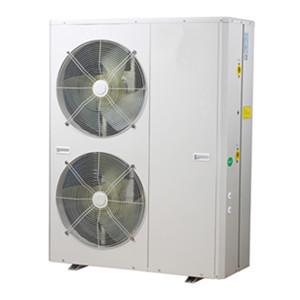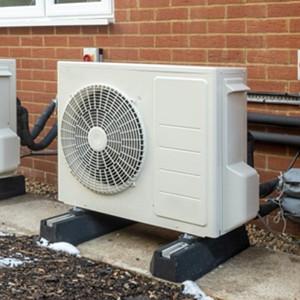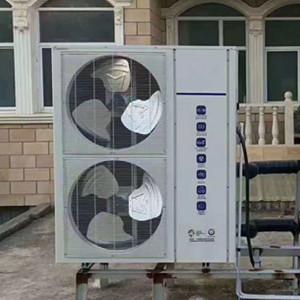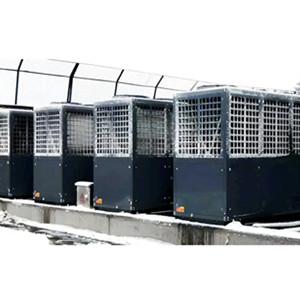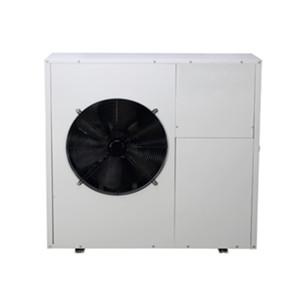How much Electricity does an Air Source Heat Pump use
Although gas boilers are still the first choice for most, more and more people are looking for alternatives to heat their homes. Currently, a good alternative is a heat pump. They are also becoming more and more popular.
As concerns about global warming grow, energy consumers are under increasing pressure to reduce the amount of carbon dioxide (CO2) released into the atmosphere each year. While this responsibility may partly fall on homeowners, it is ultimately up to brands to produce more eco-friendly products that can be used in homes and businesses.
Heat pumps do not produce any carbon dioxide, but they do use electricity to run. Currently, electricity production produces significant greenhouse gas emissions due to the combustion of fossil fuels. Therefore, in order for your heat pump to run entirely on renewable energy, the electricity it uses should be obtained from solar or wind energy. This will make your heat pump 100% CO2 neutral. According to the European Heat Pump Association, heat pumps save the EU 916 million tons of CO2 emissions every year.
While a boiler operates at about 90% efficiency, a heat pump may be more than 300% efficient, for example, 1 kilowatt of electricity can produce 3 kilowatts of heat.
Now that we’ve identified some of the key benefits of heat pumps and how they can impact your carbon footprint, what impact will one of these devices have on your energy bill? Below, we discuss how much electricity a heat pump uses and how you can reduce your energy bill.
How much electricity does a heat pump use?
The efficiency of a heat pump is measured using CoP. This unit is determined by measuring the energy input (in this case, electricity) and the energy output (heat). A heat pump with a CoP of 3 produces 3 kW of heat for every 1 kW of electricity.
The average home requires approximately 12,000 kilowatt hours (Kwh) of heat per year. So, to achieve this, a heat pump with a CoP of 3 would use 4,000 kWh of electricity per year. This number depends on the size of your home, how well it is insulated, and how much hot water you use. It also depends on the efficiency of the heat pump. A heat pump with a CoP of 4 requires less electricity to produce the same amount of heat.
Electricity costs approximately 14.0p per kWh. This means your heat pump could cost around £560 a year to run. This number probably doesn't sound too different from your gas bill. The average household spends around £636 a year on gas.

How to use a heat pump to lower your electricity bill?
While your energy bills may decrease if you switch to a heat pump, you may notice an increase in electricity usage. Fortunately, there are ways to limit your heat pump's energy consumption and lower your energy bill.
First, avoid changing the set temperature. By frequently adjusting the temperature up and down based on how hot or cold you are, a heat pump will use more electricity. When maintained at the same temperature, it consumes less power. Set the thermostat to a specific temperature and don't change it. It's worth noting that lowering the thermostat by 1 degree may result in a 2.5% reduction in energy bills, for example, you can change the temperature from 21 °C to 20 °C.
Second, check the water heating temperature. If set too high, your heat pump will use more power to get the water to the correct temperature. You can reduce the water temperature to 40 °C or lower. This is still enough to effectively heat your home.
Improper maintenance of a heat pump can result in a 25% increase in energy bills. Clogged and dirty filters reduce airflow through the system and can harm performance. It's also worth checking the fan regularly to make sure there isn't any debris, such as leaves, in it. Your heat pump, like your boiler, should be serviced annually.
Finally, heat pumps can be combined with solar photovoltaic panels. By using electricity produced on-site, you can reduce your energy bills while reducing your carbon footprint. It is thought that using solar PV panels can reduce the running costs of a heat pump by up to 40%. Although installing solar photovoltaic panels requires an investment, you may recoup the cost within a few years.
If you want to reduce your electricity consumption, you can try other methods that don't necessarily involve a heat pump.
You can install some reflective panels behind each radiator. These prevent heat from escaping through the walls and reflect it back into the room. These panels can be purchased or made from a large sheet of card and some tinfoil.
You might consider replacing your light bulbs with energy-saving ones. Not only do they last longer, but they save you money every year.
For appliances like washing machines and dishwashers, make sure they're full before turning them on - it's better to wash a full load of items rather than multiple smaller items.
Get more help
Leomon is a professional heat pump manufacturer. If you need to purchase an air source heat pump, please contact us. Our heat pump experts will give you the best advice.

